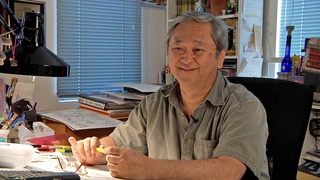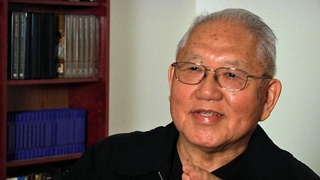Interviews
On Challenging Institutions
My first day of school, I was lined up to be renamed. My parents had given me a wonderful name ‘Takayo’ meaning a ‘child with high ideals.’ But this well-meaning teacher from Arkansas decided to give me an American name ‘Rose.’ When I look back on this, I realize this has been very very helpful in who I became because somehow even as a young child, you are made to believe you are not a real American that you’re an outsider. That empowered me throughout my life to be able to challenge institutions. And when I give speeches, I’ve always commented that I can’t complain, just think I could have gotten ‘Petunia.’
Date: July 17, 2013
Location: California, US
Interviewer: Sean Hamamoto
Contributed by: Watase Media Arts Center, Japanese American National Museum; Japanese American Bar Association
Explore More Videos














Postwar school-life
(b. 1930) Half Japanese and grew up in both Japan and the United States.

Re-examining Identity
(1941-2018) Japanese Canadian photojournalist and activist
